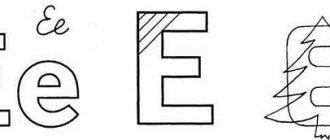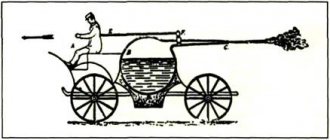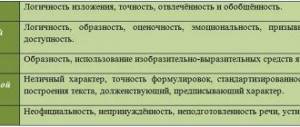Formation of the infinitive
The distinctive feature of the infinitive is the particle to, which comes before the verb.
I would love to go with you to the mountains, but unfortunately I am busy at the weekend. — I would like to go to the mountains with you, but, unfortunately, I’m busy this weekend.
However, sometimes to can be omitted; such an infinitive is called bare infinitive.
I have never heard you sing so well! - I have never heard you sing !
In negative sentences, the particle not is placed before the infinitive.
James will try not to be late for the meetings any more. — James will try not to be late for meetings anymore.
Means of forming the infinitive
In Russian, infinitives are formed from the personal form using the suffixes –т and –ти. In most cases, for verbs whose stem ends with a vowel, the indefinite form is formed using the suffix - т. For example: sleep, dance, eat.
The only exceptions to the rule are two verbs: put and gnaw. The suffix - ti occurs in rare cases when the stem of the verb ends with a consonant. For example: carry, weave. The stress in such verbs is always placed on the last syllable.
The personal forms of verbs, the stem of which ends with the letters - g, - x, - s, have the ending - ch. For example: bake - bake, bank - take care, guard - guard.
Infinitive forms in English
In English, the infinitive has four forms: simple (simple), continuous (long), perfect (perfect, perfect), perfect continuous (perfect long). Infinitives can be in active or passive voice.
| Infinitive | Simple | Continuous | Perfect | Perfect Continuous |
| Active | to make | to be making | to have made | to have been made |
| Passive | to be made | to be made | to have been made | to have been made |
Let's look at each of the forms in more detail:
- Simple Infinitive is the most common form, used to denote action in the present and future tense.
I am glad to receive the reply from you so quickly. - I'm glad to get an answer from you so quickly. The report needs to be written today. — This report should be written today. - Continuous Infinitive - denotes a continuous action, used to express action in the present or future tense.
He doesn't pretend to be reading a book. — He pretended to be reading a book. It's reported that Tina is staying in hospital these days. is currently in the hospital. - The Perfect Infinitive is used to denote an action or state that preceded a specific moment or was performed before another action.
It's nice that he has come earlier. - It’s very good that he came to the meeting earlier. We hope to have finished the building works by the end of May. - We hope complete construction work by the end of May.After the verbs to intend, to hope, to expect, to mean in the past form, the perfect infinitive is used to denote an action that should have happened, but did not happen.
I intended to have finished my work by the end of the week. — I intended to finish my work by the end of the week (but didn’t finish it). Tod hoped to have met his girlfriend there. — Todd hoped to meet his girlfriend there (but didn’t).
- The Perfect Continuous Infinitive indicates an action that is still going on or has been going on for some time before the specific action.
This form emphasizes the duration of the action over a certain period of time. By the way, this is the rarest form of the infinitive. I'm glad that I have been working for this company for so many years. — I am glad to work for this company for so many years. It seems that my grandma has been living in this house for all her life. — It seems that my grandmother has lived in this house all her life.
Please note that the Russian language does not have such a variety of infinitive forms, so when translating, a simple infinitive or a verb in the personal form is most often used. We also note that continuous and perfect infinitives are used extremely rarely in English.
If you want to learn how to use infinitives confidently, sign up for a practical grammar course.
The concept of the infinitive
An infinitive is an indefinite form of a verb that names a procedural state or action, without indicating the time when this action or state occurs. The infinitive also does not indicate the subject of activity, and does not express any relation to reality.
Infinitive forms of the verb answer the questions: what to do? what to do? For example: What to do? - to love, live, sleep, eat, sing, dance. What to do? - sing, dance, say, forget. The infinitive is the most general form of the verb and expresses its general grammatical meaning.
The infinitive has such morphological features as transitivity, reflexivity, conjugation and aspect. Unlike other languages, in Russian you can form an infinitive form from each personal verb.
The personal form can also be formed from the infinitive. For example: sleep - sleep, sing - sing. Infinitives cannot be inflected in number, gender and tense, as they are opposed to the finite form of the verb.
Infinitive with the particle to
The infinitive with the particle to is used:
- To express the purpose and intention of an action.
Christina goes shopping every weekend to buy some food for her big family. — Christina goes shopping every weekend to buy food for her large family. I came back to close the windows, as we were leaving for the long vacation. — I came back to close the windows because we were leaving on a long vacation. - After certain verbs that need to be learned by heart so as not to doubt when choosing the infinitive form.
to afford - to allow oneself to agree - to agree to aim - to intend, to try to appear - to appear to arrange - to negotiate to ask - to ask to attempt - to try to be able - to be able, to be able to beg - to ask, to beg to begin - to begin to care - to want, to have a desire to choose - to choose to claim - to declare, to assert to dare - to decide, to have the courage to decide - to decide to demand - to demand to deserve - to deserve to dread - to be afraid, to be afraid to expect - to expect to fail - to endure failure to get - get permission to happen - to appear, to happen to hesitate - not to decide to hope - to hope to hurry - to hurry to intend - to intend to learn - to learn to manage - to cope to need - to need to neglect - to forget, not to do something to offer - to offer to plan - to plan to prepare - to prepare to pretend - to do kind, pretend to proceed - start doing something after something to promise - promise to refuse - refuse to seem - seem to strive - try, make an effort to swear - swear to tend - have a tendency, gravitate to threaten - threaten, intimidate to vow - to take an oath to wait - to wait to want - to want to wish - to want, to wish The children wanted to open the mysterious box. — The children wanted to open the mysterious box. Jane agrees to forgive Rob if he promises to marry her in a month. — Jane agrees to forgive Rob if he promises to marry her in a month.
- After the verbs to find out (find out), to know (know), to remember (remember), to explain (explain), to ask (ask), to learn (teach), to decide (decide) and others, when after them there is a question word.
She learned how to sing at the age of 4, so she is a real talent! — She learned to sing at the age of 4, she is a real talent! Olga wrote on Instagram to ask the locals where to buy a bottle of good wine in Verona. — Olga wrote on Instagram to ask the locals where to buy a bottle of good wine in Verona. - With the expressions would prefer (would prefer), would love (would like), would like (would like).
I would love to pay for the bill, but I forgot my wallet at home. — I would like to pay the bill, but I forgot my wallet at home. I would prefer to go by taxi, not on foot. — I would prefer to take a taxi rather than walk. - After adjectives, for example: glad (happy), nice (pleasant), happy (happy).
As a rule, sentences begin with the expressions It is..., It was..., It has been.... I 'm willing to see the progress in your study. - I want to see progress in your education. It's so important to be sincere in relationships. - It is so important to be sincere in relationships. - After indefinite pronouns, for example: something (something), somewhere (somewhere), anyone (anyone), nothing (nothing).
In this case, the infinitive is used to show that something is necessary or possible. There is nothing to discuss any more, let's go home. - There is nothing more to discuss , let's go home. Can I do something to help you in this case? — Is there anything to help you in this situation? - In introductory constructions: to be honest, to cut a long story short, to begin with, to sum up, to put it mildly, to tell the truth (to be honest).
To begin with , let me announce the plan of our meeting. — To begin with , let me announce the plan for our meeting. To cut a long story short , infinitive is not the easiest topic, but a useful one. — In short , the infinitive is not the easiest topic, but it is useful.
Definition
Let us recall that in the Russian language there are three types of verb moods:
- Indicative (indicative);
- Conditional or subjunctive (optative);
- Imperative (imperative).
The imperative mood is a grammatical feature of a verb, which is expressed by a number of verb forms that encourage something.
This could be an order (command, hence the name), a request, a polite instruction, advice, or some other expression of will. Moreover, the semantic connotation is not reflected in any way when writing or forming forms. It all depends on the intonation or motive prompting action.
Examples:
Please, pass me the salt.
Give me my hat.
Let's write a letter.
Get out of the water immediately!
Let him talk about himself.
It should also be taken into account that forms of the imperative mood exist outside of time or have an unreal meaning (the verb is not related to reality). In other words, implementation of the action is possible, but not a prerequisite.
Examples:
Smile!
Give me back my things.
Let them see.
Infinitive with the particle to and without the particle to
The infinitive can be used with or without the particle to:
- I want to help you. - I want to help you.
- I must help you. - I have to help you.
Most often, the infinitive is used with to, however, there are a number of cases when an infinitive without the particle to is used, they apply to all forms of the infinitive (i.e., all forms from the table above). I note that most often the infinitive without to occurs after modal verbs , the rest cases are quite rare.
After modal verbs (most common case)
Modal verbs, for example, can, must, should, may , by themselves do not give the full meaning (I can... what can I?); they are supplemented by an infinitive without the particle to.
She can't speak to you. - She can't talk to you.
He should ask them a question. “He should ask them a question.”
Shall I talk to him? - Should I talk to him?
They must leave before 10.00 am - They must leave before ten in the morning.
After the verbs MAKE and LET
In sentences where make is used to mean “to force” and let to mean “to allow”.
Her parents let her visit us . – Her parents allowed her to visit us.
Let's go to the cinema tonight. - Let's go to the cinema tonight. (“Let’s” is short for “let us”)
You made me cry . – You made me cry.
Don't make me read that boring book. - Don't make me read this boring book.
After the turn “had better”
The phrase had better means “better, follows”, often shortened to d'better .
We had better take some warm clothing. - We better take warm clothes.
She had better ask him not to come. “She’d better ask him not to come.”
You'd better give me your address. - You'd better give me your address.
They had better work harder on their homework. “They should do a better job on their homework.”
After the interrogative pronoun WHY
There is a pattern of interrogative sentences using “Why,” which aim to suggest something in the form of a rhetorical question. After why the infinitive is used without to.
Why wait until tomorrow?
– Why wait until tomorrow? Why not ask him now? - Why not ask him now?Why leave before the end of the game? - Why leave before the end of the game?
Why walk when we can go in the car? - Why go when we can go?
After verbs of perception there is a “complex object”
In short, this phrase is built according to the following scheme: subject + verb + object of action + infinitive. If the verb is replaced by a verb of perception (see, hear, feel), the infinitive is used without the particle to.
He saw her fall from the cliff. “He saw her fall off the cliff.”
We heard them close the door. “We heard them close the door.”
They saw us walk toward the lake. “They saw us going to the lake.”
She felt the spider crawl up her leg. “She felt a spider crawling up her leg.
Read more about this turnover in the article “What is a Complex Object (complex addition)?”





